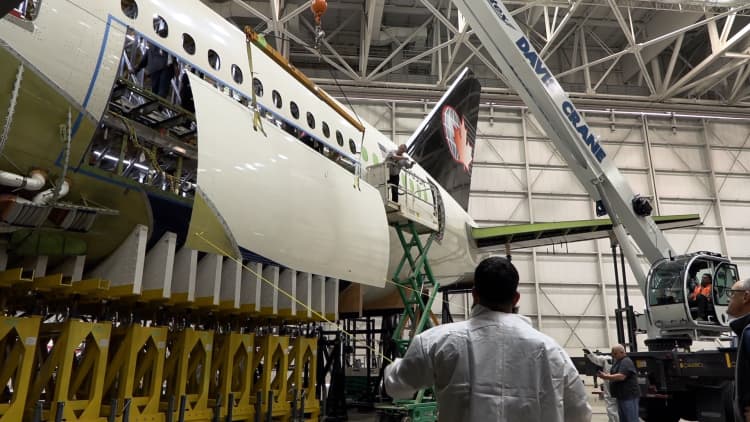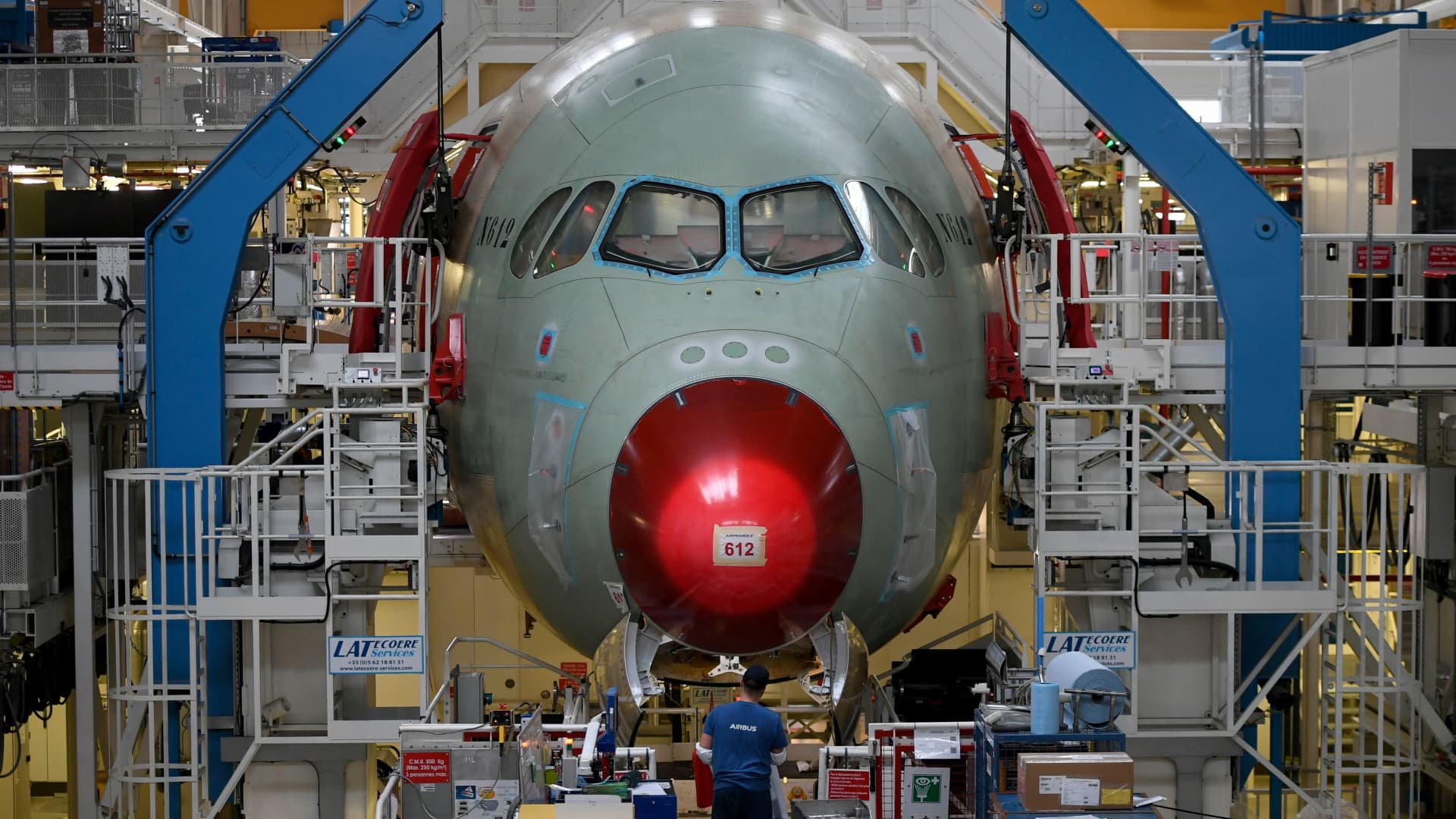An employee works at the Airbus A350 assembly site, in Colomiers near Toulouse, south-western France, on December 9, 2022.
Valentine Chapuis | AFP | Getty Images
A lot has changed in the four years since one of the aviation industry’s biggest air shows was held in person.
The Covid-19 pandemic devastated travel demand, the aviation industry shed thousands of experienced workers and roller coaster appetites for new jets wreaked havoc on production rates of new planes.
After all that, the Paris Air Show — a trade event where companies get a chance to showcase new technology, commercial and military aircraft, and strike deals — returns on Monday during a surge in air travel demand, with airlines starving for jets to feed it. The question is whether Boeing, Airbus and their numerous suppliers can catch up.
“That’s creating pressure on the order books — it’s creating upward momentum on used aircraft lease rates and forcing airlines to make compromises,” said Andy Cronin, CEO of aircraft-leasing firm Avolon.
Aviation analytics firm IBA estimated last week that there could be orders for about 2,100 planes during the show as airlines replace older aircraft and prepare for future growth in air travel.
Over the past year, Boeing has logged large orders or preliminary agreements from customers including United Airlines, Saudia and new Saudi carrier Riyadh Air. Air India’s massive order earlier this year included both Boeing and Airbus jets.
Turkish Airlines’ chairman told reporters last month that the carrier is planning to order around 600 aircraft, both wide-body and narrow-body planes. The order would be the largest ever for a single airline, though it isn’t clear whether that would come together in time for the show.
IBA’s chief economist, Stuart Hatcher, wrote in a June 15 forecast that Delta Air Lines, Malaysia Airlines and Air France-KLM could be buyers, but the timing isn’t yet certain. Air Baltic could also look to expand its Airbus A220 fleet, he said.
“It might still be too early to call any Chinese expansion yet given the political climate, but I wouldn’t be surprised to see top-up orders coming through,” Hatcher wrote.
The major challenge for manufacturers now is increasing production. Slots for narrow-body jets, such as Boeing 737s and Airbus A320s, are sold out for years. Now that long-haul travel is returning, some airlines could also be looking to expand their fleets of larger, long-range jets.
But customers around the world have been forced to wait longer than expected for new planes as Boeing, Airbus and a web of suppliers around the world try to ramp up output. That has limited airline capacity, keeping airfares high.
Qantas CEO Alan Joyce told CNBC last week that he expects supply chain issues to last into 2025.
Boeing and Airbus are scrambling to raise production rates for the coming years to meet that demand.
The production delays have also driven up rates to lease both new and older planes as airlines search for other opportunities to boost flights.
New Boeing 737 Max 8 planes are leasing for about $350,000 a month in July, up from $305,000 in January 2020 as the pandemic was beginning, IBA estimates. New Airbus 320s are going for $355,000, up from $325,000 over that period. Older versions are close to pre-pandemic levels.
“People just want their jets,” said Richard Aboulafia managing director of AeroDynamic Advisory.


